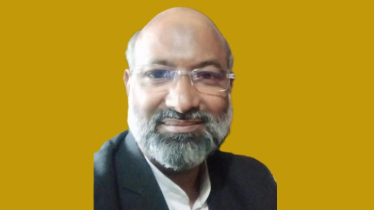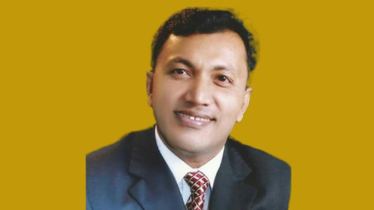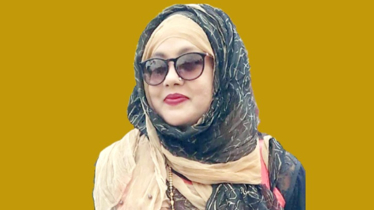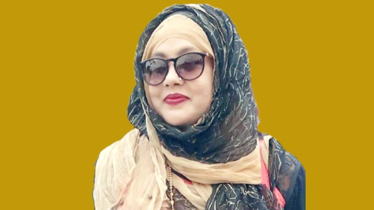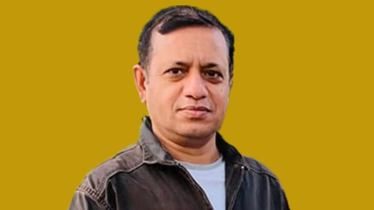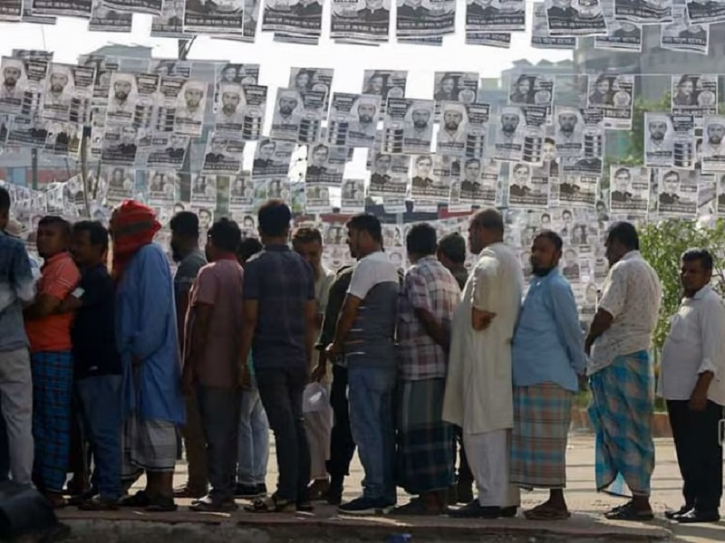
Photo: Collected
Rumors and misinformation have increased recently in the country and will increase further. Because the national election campaign is going on. There is no need for rumors or lies if the party has public support. However, using the weapon of rumor without attracting the masses will not yield good returns. It would not be wrong to call the rumor a new form of terrorism. The people also have to decide and verify the truth and falsehood before believing or propagating anything. If the politics of rumors and lies push the party back, if you do politics with these things, you will not be able to make the smart formula of repairing the state far away.
In the age of digital Bangladesh, mobile is in everyone's hands. Internet at home. From cities to remote villages, people are easily in touch with the world. Everyone is getting immediate information about what is happening and what is being heard through Facebook, Twitter, YouTube, and other social media. 80 percent of internet users in Bangladesh have a Facebook account. Currently, the number of Facebook users in the country is around five crore, and the number of viewers on YouTube is more than 3 crore.
Social media is now full of rumors and lies. In particular, slander against the government or Awami League is spread every day. The names of many important people, institutions, and celebrities in the state, including important political and social leaders, are being implicated in these rumors. Some of the rumors have implicated sensitive institutions like the armed forces. Thousands of contents are released every day with false information. Millions of people are watching it. Many believe it. Because this news has no credibility without the mainstream media, it is unknown to many.
Moreover, billions of people in remote areas can't verify the truth or falsity of that information. Taking this opportunity is a reactionary cycle. The Cyber and Special Crime Department of the Intelligence Department says that those who want to destabilize the country mainly do such things. Therefore, the Cyber and Special Crime Department has advised against believing these reports.
Criticism and lies are never the same. Criticism of any person or government can be done, but it should be done with decency in expressing one's opinion. Freedom to do as one pleases without interfering with the rights of others does not block or attack the avenues of expression of others. But we also see people participating in these rumors, who themselves often work and write about freedom of expression. Gives a speech or preaches. But when another person's actions don't match their opinion, it can be seen as supporting a false position centered on that subject.
Modern technology is helping to spread new rumors. Rumors spread quickly. Many are making lies and deliberately spreading falsehoods. These deliberate falsehoods and stories are now being used on social media and even mass media instead of being spread to the public. The saddest thing is that a class of so-called educated people are using these things and spreading them in various ways to convince others. A class is also using religious institutions to spread false information, stories, or fake videos.
During the liberation war in this country, many such myths and lies were spread. Its continuation is still going on. These lies are being spread on social media at regular intervals. It tried to embarrass the current Awami League government. Spreading falsehoods for these organized immoral purposes is a rumor. Rumors are spread to mislead people or create fear among the public. Some capitalize on uncertainty and feed on rumor tablets. According to many experts, rumors are a subset of propaganda. Some opposition parties in our country have been using this subset as a political weapon. More or less, we all know, understand, and can guess where the source of political rumors is or how these are created and spread. Several political activists regularly read these false stories and rumors, as if this is their job. Even in 2014, violence was done in the country by spreading rumors.
It is observed that there has been an attempt to embarrass the government or the Awami League through rumors, bypassing the normal process of politics in Bangladesh. There will be parties and opposition in politics, politics for the welfare of the people. Policy differences are the symbol of politics, but aside from the mentality of calling good, reliance on evil rumors is both laughable and detrimental to the country. If anything, rumors are being spread through various channels without logical criticism. Even in this case, religion is not being left out, we have to come out of this misdeed of misusing religion to mislead people.
Bangladesh has taken to counter this digital propaganda and activities are ongoing with the international media to highlight the positive image of Bangladesh. Moreover, the foreign Embassies and High Commissions are working tirelessly under the leadership of Foreign Minister Dr. A K M Abdul Momen. It is also known from the Ministry sources that they are giving regular press conferences and replies on Twitter to prevent misinformation. Everyone is working under the dynamic leadership of the Ministry of Foreign Affairs to respond to the rumors and false information being spread against the government.
In Bangladesh, social media has frequently been abused to provoke social, religious, political, and economic conflict. Misrepresentation, deception, and harmful content have caused extensive damage. Social media is being used to fan the flames of political unrest throughout this time. Bangladesh's government and law enforcement authorities will need to be more cautious in managing this issue if they want to keep peace in the entire country.
The People of Bangladesh will reply to all propaganda and conspiracy against Bangladesh through their spontaneous participation in the election and voting. Facebook to help EC combat propaganda and misinformation. EC delegation held a meeting with Facebook’s delegation recently to prevent propaganda and misinformation on Facebook was the main topic. Facebook authorities have assured the Election Commission to assist in preventing misinformation and propaganda on the social media platform following the announcement of the schedule for the 12th parliamentary election. The main topic of discussion was how to prevent propaganda and misinformation on Facebook. Facebook will delete, and remove content that promotes hate speech, communalism, and other violations.
The spread of misinformation has been a major challenge to society for democracy and peace in contemporary times. Bangladesh has historically been subjected to widespread political and communal violence caused by mis- and disinformation at different times, hindering the smooth functioning of the institutions. The popularity of social media and its increased accessibility to the masses has further complicated the fight against misinformation. Further, it is not uncommon for disinformation to make its way into mainstream society.
Shaping a Future of Rights Freedom of expression drives all other human rights in Bangladesh. Misinformation online and offline proliferates with a serious impact on the institutions underpinning democracy, the rule of law, and human rights. This context necessitates that the proposed initiative will work with multi-stakeholders and youths, in rural areas to identify the mechanisms for countering misinformation at the local level as well as the challenges in dealing with misinformation.
In the digital age, information flows freely, but so does misinformation. In Bangladesh, journalism, like in many parts of the world, is facing an unprecedented challenge. As the nation’s media landscape continues to evolve, journalists find themselves at the forefront of this battle to uphold truth and integrity. The challenges journalism in Bangladesh faces concerning fake news and its crucial role in safeguarding a democratic society.
The consequences of misinformation and disinformation can be dire, ranging from inciting violence to damaging reputations and undermining trust in the media. When such occurrences persist within mainstream media, rumors have the potential to proliferate, and vested interests may seize the opportunity to exploit them. In recent times, our nation has unfortunately witnessed a series of distressing incidents, such as the Ramu, Nasirnagar, and Cumilla among others. These events have not only caused significant harm within our borders but have also had a detrimental impact on our reputation both domestically and internationally.
Journalists often find themselves under pressure to break news first, leading to hastily published stories that may contain errors or unverified information. In a world where misinformation flourishes on sensationalism, responsible journalism must prioritize accuracy over speed.
Fighting fake news during election time can be challenging, but there are several steps that individuals and organizations can take to help combat its spread. One crucial step is to fact-check information before sharing it. This can be done by using reputable sources such as news organizations, government websites, and fact-checking organizations to verify the accuracy of the information. Facebook and Google have set up a special system to monitor fake news in Bangladesh.
Another critical step is to avoid sharing information from unverified sources, particularly on social media. This can help prevent the spread of disinformation and fake news, as well as other types of misinformation. Ambassadors advised Bangladesh on what to do and not to do. Due to Sheikh Hasina's skillful diplomacy and prudence, foreign interference in the internal affairs of Bangladesh has now stopped. Sheikh Hasina has strictly controlled the tendency of different Embassies to make statements or comment on the election or other issues. Such a visionary decision of the Prime Minister of a country like Bangladesh is an inspiration for countries struggling for development in the world.
The Awami League government has been in charge of running the country for 15 consecutive years. The government is facing various adversities in its third term. Nasty slander, especially on social media, has increased dramatically. The activities of lobbyist firms have been added to this. Lobbyist firms in various influential countries are continuously spreading false propaganda against the government and as a result of all this propaganda, some countries are taking a negative attitude towards Bangladesh.
The government feels that such propaganda may increase in the coming days ahead of the elections, especially on social media. On the other hand, lobbyist firms in various countries including the United States, United Kingdom, and European Union are trying to break the friendly relations of those countries with Bangladesh by providing various false information. In this situation, the responsible sources of the government have confirmed that the Awami League government has decided to take some initiatives to prevent propaganda. These decisions include: making embassies more active; Many of the embassies that Bangladesh has in different countries worldwide are not active. Their main function is to provide various protocols and observe the day.
They are not responding to the disinformation that is being spread on this kind of social media, or they are also indifferent to the anti-Bangladesh propaganda that is being done in different places. The government wants to activate the local Awami League from there. For this reason, new instructions have been given to the branch organizations or affiliated organizations of Awami League in different places that they should be vigilant against such propaganda and anti-Bangladesh activities and carry out programs.
The government has decided to file a complaint with the concerned authorities against those who are spreading mischief on social media. These reports will be made from wherever they are, and strict instructions will be issued to them not to run such content on YouTube, Facebook, or any other social media. The Ministry of Foreign Affairs will be made more active. The government has taken the initiative to increase public relations with the foreign embassies in Bangladesh—proper publicity about Bangladesh in foreign media.
The Election Commission has been working to protect and prevent rumors and propaganda during elections and following various strategies to prevent rumors and propaganda. Many people are trying to spread false propaganda and rumors about the election. BNP-Jamaat wants to confuse the people of the country. The Election Commission has instructed concerned departments to handle the issue strictly and conduct campaigns online and offline against this misinformation during the election. The people of Bangladesh will reply to all the propaganda against the country by voting.
The writer is a columnist and researcher.
The views expressed in this write-up are those of the authors and do not necessarily reflect the stances of The Business Eye.

.png)
